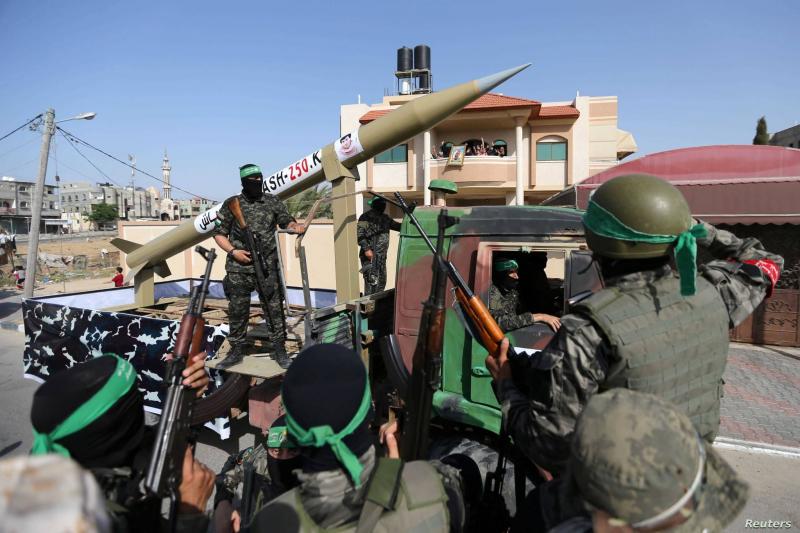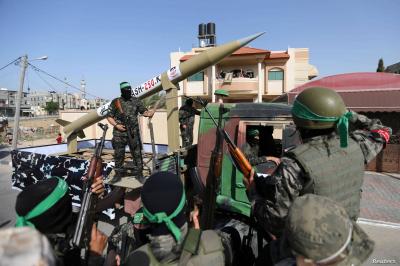On October 7, the Palestinian Islamic Resistance Movement (Hamas) launched a surprise attack from the Gaza Strip on Israel, resulting in the deaths of 1,400 people and the capture of around 240 hostages in the deadliest day in Israel's history. The Hamas attack sparked a war between them and Israel, during which Gaza witnessed the most intense Israeli bombardment in 75 years of conflict. Health authorities in the Hamas-governed Gaza Strip report that over 10,000 Palestinians have been killed, including 4,104 children, due to Israeli airstrikes in Gaza as of this Monday.
#### What is Hamas?
Hamas was established by the Muslim Brotherhood in 1987 during the First Palestinian Intifada. Israel, the United States, the European Union, Canada, and Japan classify Hamas as a terrorist organization. Hamas describes its military activities as resistance against Israeli occupation.
#### What Does Hamas Aim to Achieve?
Hamas seeks to liberate all land located between the Mediterranean Sea and the Jordan River, which includes Israel as well as the occupied West Bank and the Gaza Strip. They refuse to recognize Israel and have staunchly opposed the Oslo peace accords negotiated by Israel and the Palestine Liberation Organization (PLO) in the mid-1990s. The 1988 Hamas charter calls for the elimination of Israel, but leaders of the movement have occasionally offered a long-term truce with Israel in exchange for the establishment of a viable Palestinian state on all territories occupied by Israel in the 1967 war. Israel views this as a deception.
#### How Did Hamas Come to Power?
Hamas won parliamentary elections held by Palestinians in 2006, marking its first participation in elections and also the last time such elections were conducted. It took control of the Gaza Strip in 2007 after a brief civil war with forces loyal to the Fatah movement led by President Mahmoud Abbas, who is based in the West Bank and heads the PLO. Hamas accused Abbas of conspiring against it, while Abbas described the event as a coup. Since then, there have been numerous rounds of conflict with Israel, which have often involved Hamas launching rocket attacks from Gaza and Israeli airstrikes and bombardments of the enclave.
#### Who Are the Hamas Fighters?
Hamas has a military wing known as the Izz al-Din al-Qassam Brigades, which has sent armed fighters and commandos into Israel and launched thousands of rockets and mortar shells. The military wing of Hamas is highly secretive and is led by Mohammed Deif, the mastermind behind the October 7 attack on Israel. The Izz al-Din al-Qassam Brigades has bases throughout Gaza but also has members in the occupied West Bank and abroad. Many of its leaders and fighters are believed to be battling Israeli ground troops in Gaza from a network of tunnels in the territory.
#### Who Funds Hamas?
Although it is a Sunni group, Hamas is part of a regional alliance that includes Iran, Syria, and Hezbollah in Lebanon, all of which generally oppose U.S. policy in the Middle East and Israel. While its power base is in Gaza, Hamas also has supporters throughout the Palestinian territories, and its leaders are scattered in various countries in the Middle East, including Qatar. The movement receives funding, weapons, and training from Iran, but it also has a fundraising network around the world. Experts and officials say it uses this network to reroute support from charities, friendly countries, and move these funds through Gaza tunnels or utilize cryptocurrencies to evade international sanctions. The U.S. State Department has stated that Hamas raises funds in other Gulf countries and receives donations from Palestinians and other expatriates as well as from its affiliated charities. Matthew Levitt, a former U.S. official specializing in counter-terrorism, estimates that the bulk of Hamas's budget, which exceeds $300 million, comes from taxes imposed on businesses, from countries including Iran and Qatar, or from charitable organizations. A Qatari official noted that his country's aid to Gaza is delivered directly to families in need of essentials like food and medicine, under strict guarantees to ensure that it reaches the affected civilians. He added that the distribution is coordinated with Israel, UN agencies, and the United States.




